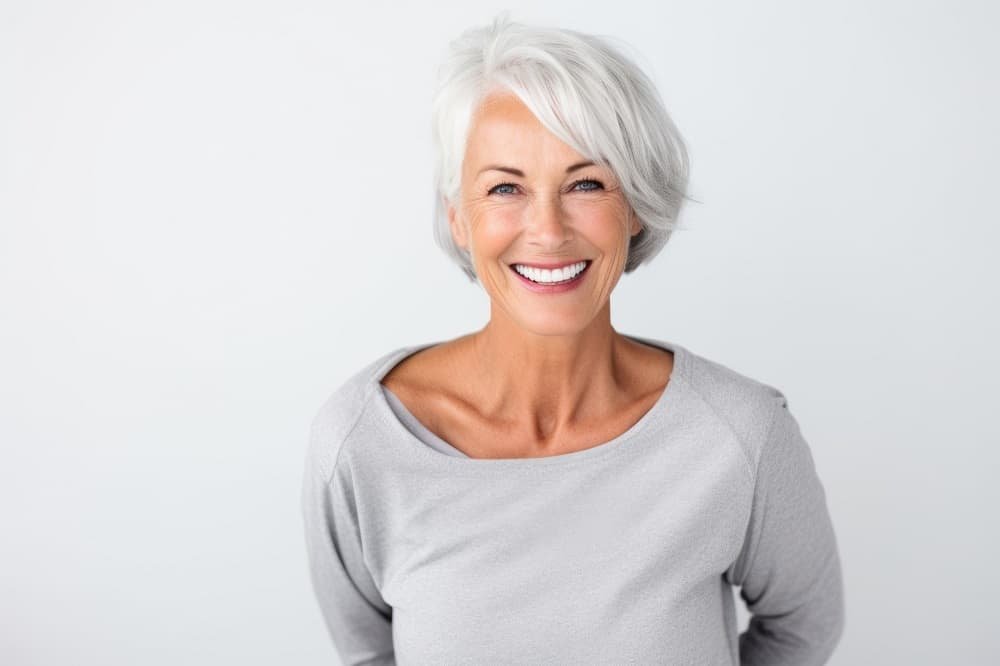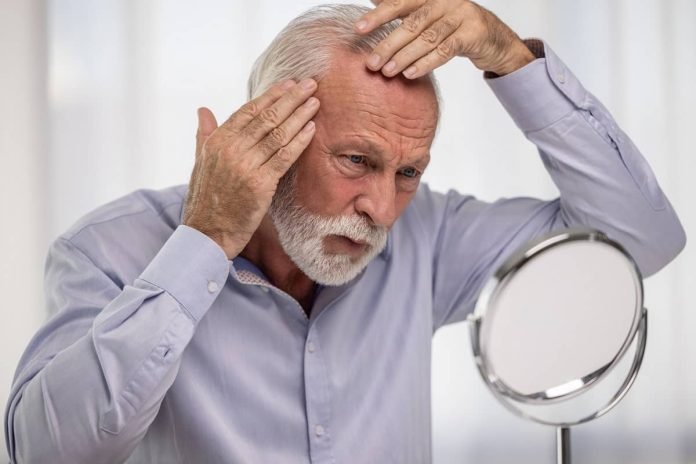As you age, your body undergoes various changes, and one area that is significantly affected is your hair. Studies show that a person’s hair growth rate decreases once they reach their senior years. Eventually, the aging process can lead to several hair-related issues, such as thinning, hair loss, graying, and overall loss of vitality.
Thankfully, there are ways to reverse the impacts of aging on your hair and restore its health and vibrance. Keep reading, as this article will further discuss how aging affects your hair and provide tips on how to reverse it.
Effects of aging on your hair
Here are a few ways aging can impact your hair:
- Hair loss
Over 80% of men and almost 50% of women experience hair loss during their aging years. Once you start aging, your hair follicles shrink, and your hair grows more slowly, leading to thinner and weaker hair.
One of the most common types of hair loss in aging is androgenetic alopecia, also known as male or female pattern baldness. This condition is caused by a combination of genetics and hormonal changes and can lead to gradual hair loss over time. In men, androgenetic alopecia typically affects the hairline and crown of the head, while in women, it can cause thinning throughout the scalp.
Another type of hair loss that can occur with aging is telogen effluvium. This condition is due to the disruption in the hair growth cycle, resulting in excessive hair shedding. It can be triggered by factors such as stress, illness, medication, and hormonal changes.
Fortunately, there are a few steps you can take to help reverse the effects of hair loss while aging, such as adding enough protein to your daily diet. Protein is essential for promoting healthy hair growth and can help strengthen hair follicles. You can also invest in a hair growth serum or supplement for the same purpose.
- Dryness and brittle hair
Prolonged sun exposure without any hat or SPF lotion can speed up your skin’s aging; the same goes for your hair. Since your scalp produces less oil as you age, your hair may experience more dryness and brittleness. Additionally, exposure to other environmental factors like dust, dirt, and pollution can damage hair and make it more prone to breakage.
To reverse the effects of dryness and brittleness, consider using a moisturizing shampoo and conditioner. Look for products that contain ingredients such as olive oil, coconut oil, argan oil, or shea butter, which can help hydrate and nourish hair. You can also use a hair mask once a week to provide extra moisture and nourishment.
- Loss of luster
Naturally, your hair may lose its natural luster and shine as you age. This can be due to various factors, including hormonal changes, exposure to environmental factors, and damage from heat-styling tools.
To revive your hair’s brilliance, consider using a clarifying shampoo once weekly to remove buildup and restore shine. You can also use hair serum or oil to add extra gloss to your hair. Lastly, since your hair isn’t as strong as it once was during your younger years, it may be best to avoid using heat styling tools too often, as they can damage hair and make it look dull and lifeless.
- Graying
Getting gray hair is a natural part of the aging process and is caused by decreased melanin production in hair follicles. While there is no way to reverse it, there are several things you can do to keep it looking healthy and vibrant.
Try using a purple shampoo and conditioner to prevent yellowing and brassiness. You can also apply hair gloss or glaze to add extra shine and vibrancy to your gray hair.
More tips to reverse the effects of aging on your hair

Here are some additional tips to address the effects of aging on your hair:
- Protect your hair from environmental factors
Exposure to environmental factors like sunlight, pollution, and harsh weather can damage your hair and make it more prone to breakage. To protect your hair from these factors, wear a hat or scarf when you’re outdoors, particularly during the hottest parts of the day.
- Use a silk pillowcase
Cotton pillowcases can cause friction and damage your hair, especially if you toss and turn in your sleep. To prevent this, use a silk or satin pillowcase to allow your hair to glide smoothly over the surface and prevent breakage.
- Avoid over-washing your hair
Excessive hair washing can strip away the natural oils that keep your hair hydrated, resulting in dry and brittle strands. It’s recommended to limit hair washing to every other day or every two days, depending on your specific hair type and needs.
- Get regular trims
Maintaining a regular trimming schedule is vital to promote hair health and prevent the occurrence of split ends. Aim to schedule a trim every six to eight weeks, taking into account the length and condition of your hair. Regular trims will also help keep your hair looking neat and tidy, making it appear thicker and fuller.
Wrap up
As you journey through the natural aging process, it is essential to understand how it affects your hair and take proactive steps to maintain its health and vitality. By nourishing your body with a balanced diet, using appropriate hair products, embracing the beauty of gray hair, and practicing good hair care habits, you can reverse the effects of aging on your hair.
Remember, healthy hair is a reflection of overall well-being. With proper care, you can enjoy lustrous and youthful hair at any age.








